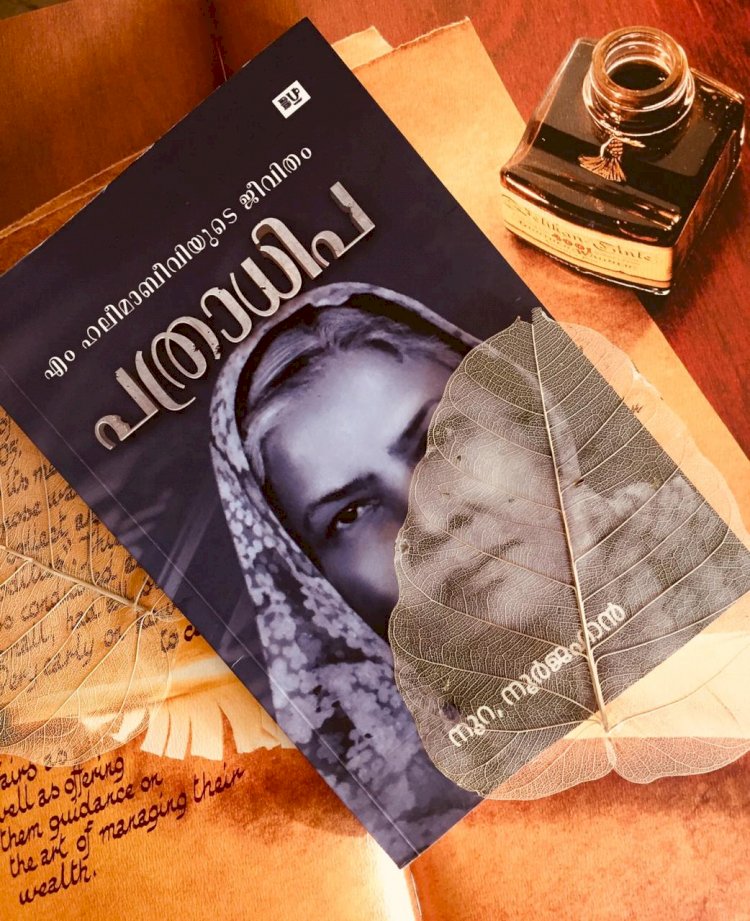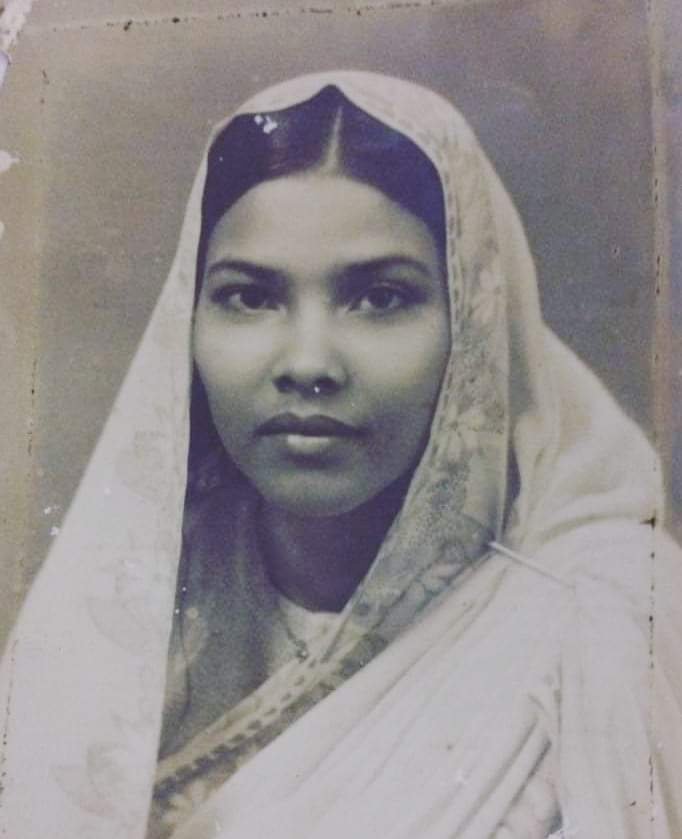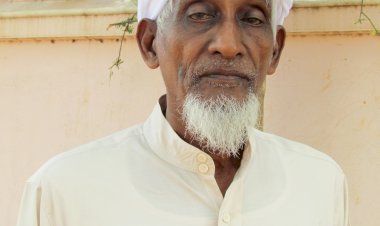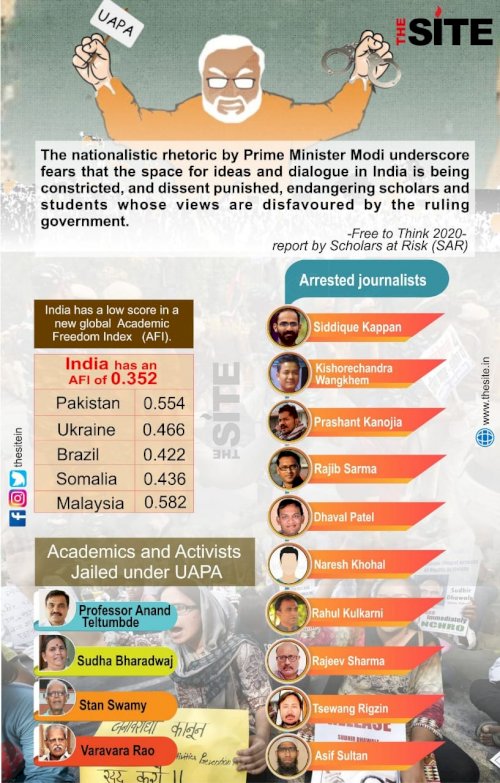Haleema Beevi: a pioneer of social reform and advocate of Muslim women’s rights
Editor's Note: Only rhetoric doesn't make women empowerment possible. It needs efforts and constructive interventions. Driven by this theory, Haleema Beevi took up efforts to recognise the multifaceted roles of Muslim women. Probably the first Muslim woman in Kerala to have run newspaper and magazines, Haleema Beevi is one of the pioneers of Muslim social reform in Kerala.
Beevi left an indelible mark as a social reformer, politician, orator and organiser. Beevi chose writing and publishing as tools for social reformation. In this special two part series, we look at the life and legacy of Haleema Beevi based on her recently published biography ‘Haleema Beevi- The Journalist'. Jointly authored by Noora and Noorjahan, the book is an exploration of the life and writings of this unsung heroine. Part one was a look at her life as a journalist and publisher. The second part highlights her efforts for social reform and ensure Muslim women their rights.
“A woman can work more efficiently than a man for the upliftment of her community. Unfortunately, men would take forever to comprehend this fact. But once you come forth with ideological clarity and efficiency, they will be left with no choice but to garland you,” Haleema Beevi once famously said.
A social reformer, Beevi rallied against gender-based exclusion with a poignant question: "how can a community prosper when its women, who constitute half of the community, are labelled weak and lead an undignified life?"
Her reform movement dates back to school days when she started chalking out her plans. While studying in Adoor NSS School, she was intrigued by the activities of Vanitha Samajam, the women’s wing of Nair Service Society (NSS). Beevi religiously watched everything from outside of the hall and reckoned the importance of such collectives for Muslim women.

Beevi was influenced by progressive ideology and reform activities of Vakkam Abdul Khadar Moulavi and Kerala Nadvathul Mujahideen (KNM), which he was part of. She took part in KNM’s mission to educate Muslim women and eliminate the superstitions and regressive elements from the community. She wrote extensively on the need for women’s education by invoking the first Quran verse - Iqra (to read). She harshly criticised the trend where women were forbidden from going to college and were called ‘the malady of the community’.
She had a thorough understanding of religious texts and made attempts for religious reforms while interpreting them from a female perspective. She urged women to not put up with oppression and raise voice until they are heard. At times, she even called out KNM, the organisation she was part of, for their perfunctory efforts and apathy in building educational institutions for women. Social critic and historian J Devika, who also wrote forward to Beevi’s biography, called her “the pioneer of Islamic feminism in Kerala”.
In 1938, Beevi organised Kerala’s first ever Muslim women conference in Tiruvalla in Pathanamthitta district. This was followed by monthly conferences that witnessed passing resolutions urging better education facilities for Muslim women in Travancore. Also, the resolutions demanded government scholarships for girls from economically backward famililes and Muslim women representation in government sector. The demands drew immediate attention from the government and were met with a peremptory response. She encouraged women to get employed and become financially self-reliant because she thought women’s financial dependence adversely affects the economic condition of the community.
Beevi’s one of the women’s conferences hosted university educated female religious scholars who addressed a mixed crowd of men and women for the first time in history. Touted to be trendsetting, these conferences assumed much significance as they broke the stereotypes. The conferences that time were usually dominated by male speakers. She was unwavering in exposing the hypocrisy of community leaders with her customary felicity. She called them out on increased arbitrary divorces and desertion of women by asking: “how come you don’t see the forlorn figures in streets and bus stops while preaching that women shouldn’t be seen in public?” She demanded shelter homes for the abandoned women.
Political activism
Among other ‘firsts’, Beevi got the tag of being the first female municipal councillor in Travancore. She contested and won the seat which was traditionally a male political bastion. When Divan Sir C P Ramaswamy Iyer clamped down on printing presses that worked against the state’s interests between 1936- 1947, Beevi, who was known as a Congress sympathiser, opened the doors of Bharata Chandrika press to print notices and pamphlets related to the freedom struggle. Pamphlets were printed at midnight and every shred of evidence were destroyed so as not to be caught. Although police carried out multiple raids in the press on suspicion, they failed to find evidence. She was blacklisted and her husband’s teaching license was cancelled. “Sir C P promised me a permanent lucrative job if I back off from political activities. I refused it outright because I believe it would have been similar to killing our freedom,” Beevi later wrote in Chandrika weekly in July 1995. The consequence of the rejection was absolute poverty. She was the first Muslim woman who was arrested for participating in Travancore Utharavaditha Prakshobham, the agitation demanding the election of a democratically constituted government. She also shared the stage with Indira Gandhi in a public meeting in Ernakulam.
The heroine died at the age of 82 in 2000 leaving the rich legacy of a social reformer, politician, orator, organiser, writer and publisher behind. How come a luminary who helmed two magazines, one weekly and one newspaper had been obliterated from history? She has been granted recognition neither in the history of mainstream journalism or literature nor in the history of Kerala’s renaissance movement. The double marginalisation she faced as a Muslim woman excluded her from Kerala Muslim history as well. Nevertheless, her work, as well as the work of hundreds of other unknown women, have paved the way for a relatively better socio-educational status of Kerala Muslim women in today’s India.











